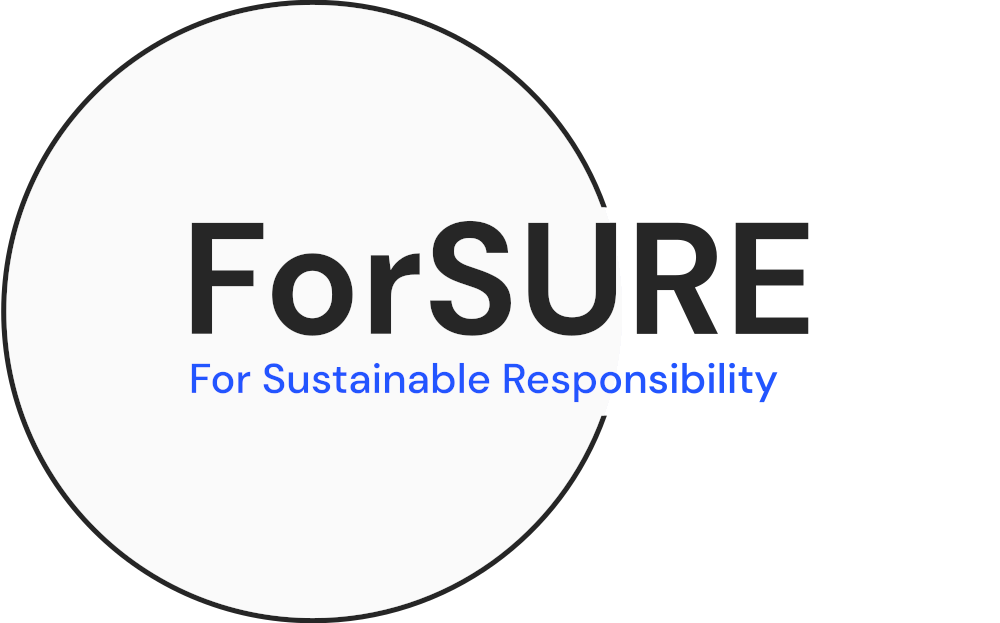
What is EPR? A Deep Dive into EPR
July 03, 2023 Niclas BrinkmannTable of Contents
Understanding EPR: A Modern Approach to Environmental Responsibility
In today's eco-conscious world, the question arises: What is EPR? EPR, or Extended Producer Responsibility, is more than just a buzzword. It's a transformative approach that holds producers accountable for the post-consumer life of their products. By understanding what is Extended Producer Responsibility (EPR), businesses can make informed decisions, aligning their operations with sustainable practices and EPR software that benefit both the environment and their bottom line. As global awareness grows, EPR is becoming a benchmark for responsible production. Companies embracing this concept are not only safeguarding the environment but also positioning themselves as leaders in sustainability. It's a win-win, fostering both ecological balance and brand reputation.
Real-World Applications: Extended Producer Responsibility Examples
When delving into Extended Producer Responsibility examples, one can find numerous instances of its practical application. From electronics manufacturers setting up collection centers for old devices to beverage companies initiating bottle return schemes, EPR is making waves. These examples showcase how businesses are taking proactive steps, ensuring their products don't end up harming the environment post-consumption. By studying these examples, other enterprises can gain insights into implementing EPR effectively, paving the way for a greener future. The global shift towards EPR is a testament to its effectiveness. As more industries adopt this approach, we can anticipate a significant reduction in waste and a boost in recycling initiatives. The future looks promising with EPR at the forefront. For a deeper dive into how EPR policies offer a solution to the waste crisis, check out this EPR's solution to the waste crisis article.
The Advantages of Embracing EPR: Key Benefits for Businesses and the Planet
The benefits of Extended Producer Responsibility are manifold. Firstly, EPR promotes a circular economy, reducing the strain on our planet's finite resources. Companies that adopt EPR often witness cost savings, as they innovate to reuse and recycle materials. Moreover, EPR fosters consumer trust. When customers know a brand is committed to sustainability, they're more likely to support it. Additionally, EPR ensures regulatory compliance, helping businesses avoid potential legal pitfalls. In essence, the benefits of EPR extend beyond environmental conservation, offering tangible advantages for businesses in today's competitive landscape. As consumers become more eco-aware, they're actively seeking out brands that prioritize EPR. This trend underscores the importance of EPR not just as an environmental initiative but as a strategic business move. The ripple effects of EPR are far-reaching, creating a positive impact on society, the economy, and the planet.

Image by Freepik
The Global Shift Towards EPR: A New Norm in Product Stewardship
As the global community becomes more environmentally conscious, the emphasis on what is EPR grows stronger. Extended Producer Responsibility is not just a trend but a necessity. Countries worldwide are recognizing the importance of EPR, implementing policies that mandate producers to take charge of their products' end-of-life. This global shift towards what is Extended Producer Responsibility (EPR) signifies a collective move to reduce waste, promote recycling, and ensure a sustainable future. By adopting EPR, businesses not only align with global standards but also position themselves as leaders in environmental stewardship. Furthermore, consumers are becoming more discerning, often choosing brands that prioritize sustainability. This makes EPR not just an environmental initiative but a strategic business decision. As the momentum continues, EPR will undoubtedly become a standard practice across industries.
Challenges and Opportunities: Navigating the EPR Landscape
While the benefits of Extended Producer Responsibility are evident, it's crucial to acknowledge the challenges. Implementing EPR requires investment, infrastructure, and a shift in business strategy. However, these challenges bring opportunities. By addressing the question of Extended Producer Responsibility examples, businesses can learn from pioneers in the field. These examples offer a roadmap, highlighting best practices and innovative solutions. Embracing EPR is not just about overcoming challenges but seizing opportunities to innovate, differentiate, and lead in an eco-conscious market. It's also worth noting that as EPR becomes more prevalent, support systems and resources will emerge, aiding businesses in their transition. Early adopters of EPR will have a competitive edge, setting industry standards and influencing consumer perceptions. To grasp the full scope of EPR's effectiveness in handling packaging waste, the Ellen MacArthur Foundation's detailed exploration is a must-read.
The Future of EPR: Beyond Recycling and Reuse
As we further explore what is EPR and its implications, it's evident that its future goes beyond just recycling and reuse. Extended Producer Responsibility will play a pivotal role in shaping product designs, promoting eco-friendly materials, and fostering collaborations. The benefits of Extended Producer Responsibility will evolve, with businesses benefiting from brand loyalty, reduced costs, and enhanced innovation. As we move forward, EPR will redefine how products are created, consumed, and discarded, ensuring a harmonious balance between commerce and conservation. Moreover, as technology advances, EPR will likely integrate with digital solutions, enhancing traceability and accountability. This fusion will empower businesses to make data-driven decisions, optimizing their EPR strategies. The journey of EPR is just beginning, and its potential is boundless. For a comprehensive understanding of how EPR can revamp recycling, the WWF's take on the Extended Producer Responsibility framework offers a detailed exploration.
EPR and Consumer Behavior: A Symbiotic Relationship
As awareness grows around what is EPR, consumers are becoming more discerning in their choices. They seek out brands that prioritize Extended Producer Responsibility, reflecting a shift in purchasing behavior. This evolving consumer mindset underscores the importance of understanding what is Extended Producer Responsibility (EPR). Brands that align with EPR principles not only contribute to environmental conservation but also resonate with a growing eco-conscious consumer base. This symbiotic relationship between EPR and consumer behavior is set to shape the market dynamics in the coming years. Furthermore, as consumers champion EPR, brands will be propelled to innovate, ensuring their products are both desirable and sustainable. This mutual push and pull will redefine market standards, making EPR not just an option but also essential.
EPR in Different Industries: A Diverse Implementation
When we explore Extended Producer Responsibility examples, it's evident that its implementation varies across industries. From the fashion sector introducing sustainable fabrics and recycling programs to the tech industry managing e-waste, the breadth of EPR is vast. These examples showcase the adaptability of EPR principles, proving that regardless of the industry, there's an opportunity to integrate EPR and make a positive environmental impact. Moreover, as industries embrace EPR, they'll discover unique challenges and solutions tailored to their specific needs. This diversity in approach will enrich the EPR narrative, making it a versatile and holistic strategy. Check out Extended Producer Responsibility for Packaging - Upstream Solutions for more information on how EPR affects packaging material.
EPR: A Catalyst for Collaborative Efforts
One of the standout benefits of Extended Producer Responsibility is its ability to foster collaboration. EPR encourages businesses, governments, and consumers to work together towards a common goal: sustainability. By understanding the intricacies of what is EPR, stakeholders can identify areas of synergy, pooling resources, and expertise to amplify their environmental efforts. In the era of EPR, collaboration is not just beneficial; it's essential. This united front against environmental degradation will accelerate positive change, making EPR a cornerstone of global sustainability efforts. As more entities join the EPR movement, its impact will only magnify.
EPR's Role in Achieving Sustainable Development Goals (SDGs)
The global emphasis on what is Extended Producer Responsibility (EPR) aligns seamlessly with the United Nations' Sustainable Development Goals (SDGs). EPR directly contributes to several SDGs, including responsible consumption and production. By harnessing the benefits of Extended Producer Responsibility, businesses can play a pivotal role in achieving these global targets, showcasing their commitment to not just profitability but also planetary well-being. Furthermore, as EPR strategies become more refined, their alignment with SDGs will become even more pronounced. Businesses will not only meet environmental standards but will also drive global initiatives, positioning EPR as a key player in the world's sustainable future. For a comprehensive understanding of EPR in practice, refer to the EPR Resource Toolkit by The Recycling Partnership.
EPR's Evolution: From Concept to Global Movement
The journey from merely asking what is EPR to its widespread adoption is a testament to its significance. Over the years, Extended Producer Responsibility has evolved from a novel concept to a global movement. This transformation is driven by the undeniable benefits of Extended Producer Responsibility, which offer both environmental and economic advantages. As industries adapt, EPR's principles are becoming ingrained in corporate cultures. This shift not only reflects a change in business strategies but also a broader societal acknowledgment of our environmental responsibilities. The global embrace of EPR signifies a brighter, more sustainable future. For a deeper understanding, you can refer to the OECD's perspective on EPR.
EPR and Technological Advancements: A Perfect Pairing
In the digital age, technology plays a pivotal role in amplifying Extended Producer Responsibility examples. Advanced tracking systems, EPR software, and innovative waste management solutions are enhancing EPR's effectiveness. By leveraging technology, businesses can address the challenges of EPR implementation, ensuring efficient and scalable solutions. The fusion of tech and EPR is a testament to modern innovation addressing age-old environmental concerns. As technology continues to advance, its role in bolstering EPR initiatives will only grow, leading to more efficient and impactful sustainability measures.
EPR's Impact on Brand Image and Reputation
Today's consumers are not just interested in what is EPR; they actively seek brands that embody Extended Producer Responsibility principles. EPR has become a cornerstone of brand reputation, with companies that prioritize sustainability enjoying enhanced consumer trust and loyalty. By understanding and showcasing the benefits of Extended Producer Responsibility, brands can differentiate themselves in a crowded market, turning EPR adherence into a competitive advantage. In an era where brand authenticity is paramount, EPR serves as a tangible marker of a company's commitment to the environment. Brands that champion EPR not only gain consumer trust but also set industry standards, leading the way in sustainable practices. For more on sustainable living, explore the OECD Better Life Index on sustainable living.
EPR's Role in Policy Making and Regulation
Governments worldwide are no longer just asking what is Extended Producer Responsibility (EPR); they are actively integrating it into their regulatory frameworks. EPR policies are shaping the way businesses operate, ensuring that environmental considerations are at the forefront. These regulations, backed by the tangible benefits of Extended Producer Responsibility, are driving systemic change, pushing industries towards more sustainable practices. As more nations adopt EPR-centric policies, a global standard for environmental responsibility emerges. This unified approach ensures that businesses operate on a level playing field, fostering healthy competition centered on sustainability.
The Road Ahead: EPR's Promising Future
As we continue to explore Extended Producer Responsibility examples and its growing influence, it's clear that EPR's journey is just beginning. With increasing global emphasis on sustainability, EPR's principles are set to become even more integral. Businesses, consumers, and governments will collaboratively push the boundaries of what's possible, ensuring that the ethos of EPR guides our path towards a sustainable and prosperous future. The adaptability of EPR means it can evolve with changing environmental challenges, ensuring its relevance for years to come. As we look to the future, the role of EPR in shaping global sustainability efforts, bolstered by digital solutions enhancing EPR's effectiveness, cannot be understated.
Want to stay updated on the latest trends in sustainability and EPR? Subscribe to our newsletter now!
FAQ
-
What is Extended Producer Responsibility (EPR)?
-
Why is EPR important for environmental sustainability?
-
How does EPR benefit consumers and society?
-
Which industries are most impacted by EPR regulations?
-
How can companies comply with EPR mandates?



